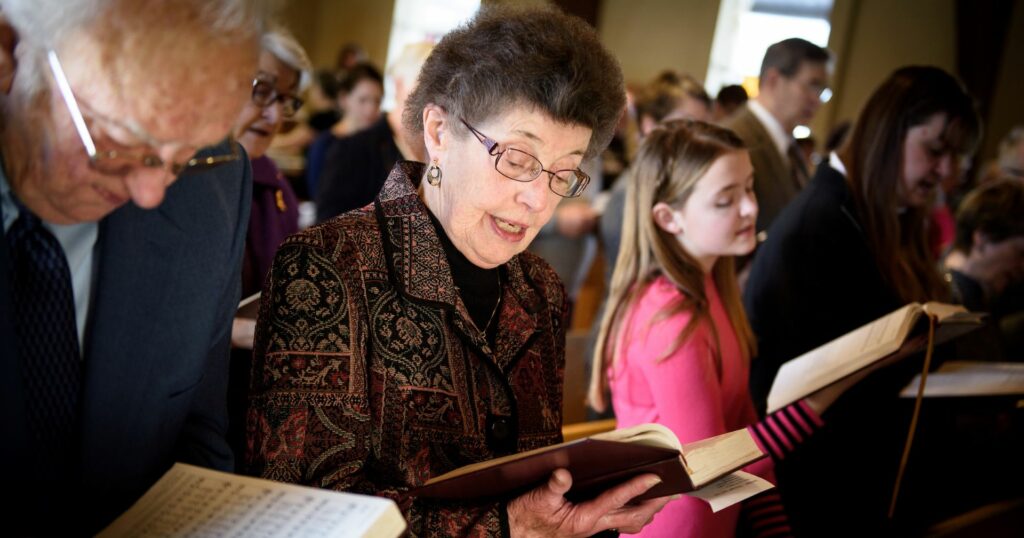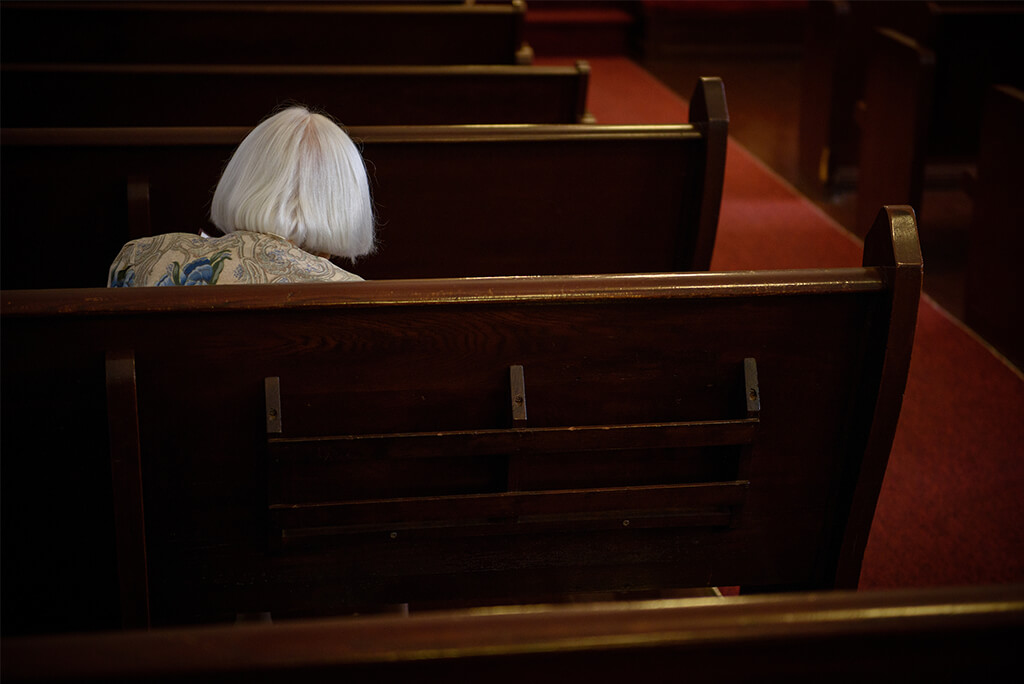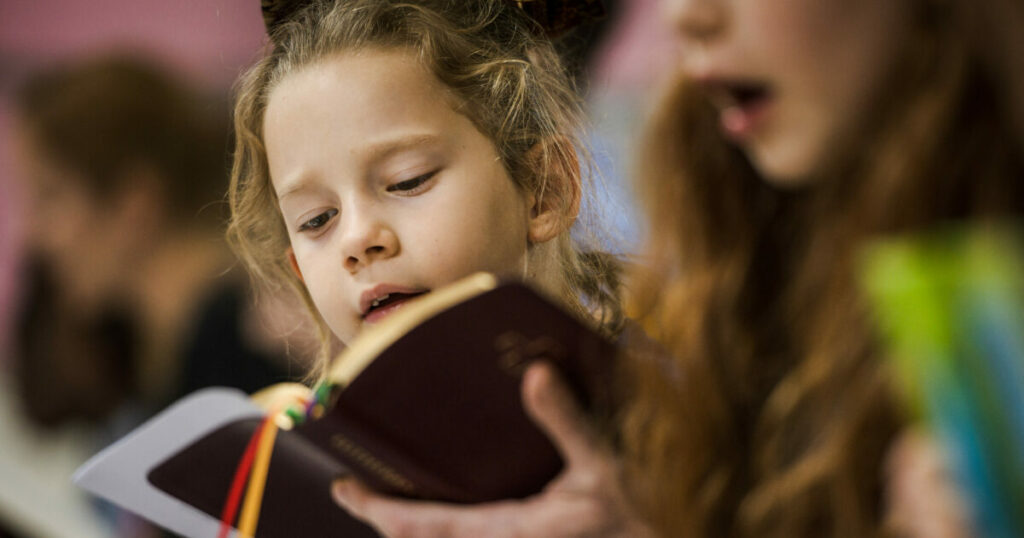By Leah Bromen
Psalm 119 petitions the Lord, “Order my steps in thy word: and let not any iniquity have dominion over me” (Psalm 119:133 KJV).
We need this prayer. The world presents many opportunities that shift our attention, invert our priorities, and lead us into disorder and sin. Even within the broad spectrum of American Christianity, much of the music, lyrics and common jargon can elicit disorder: from the focus on the individual instead of Jesus which may be found in some contemporary Christian music, to the empty platitudes in “religious” greeting cards, to the common “deeds before creeds” Christian mentality, to name just a few.
While God’s ways are always orderly, in this sinful earthly life worldly and even avowedly Christian influences can bring disorder to our lives. As we daily battle the devil, the world and our flesh, the church ought to aid in spiritual and temporal living, not create more chaos.
One of the potent ways the church can resist disorder and chaos is through the liturgy. The liturgy roots people in God’s Word. Doing so, it equips us for life and vocation: it teaches us how to pray, catechizes us to attest to our faith, instructs us in the faith, and brings God’s Word to mind throughout our days.
Liturgy roots us in God’s Word
The Lutheran liturgy is first and foremost scriptural. This underpinning in and of itself imbues order. The scriptural foundation can be observed in the Hymn of Praise, which is based on the song of the heavenly hosts in Luke 2:14 and John’s proclamation of Jesus as the Lamb of God in John 1:29. The Salutation imitates the greetings in the Lord given by Boaz (Ruth 2:4), Paul (2 Thess. 3:16) and others. Psalm 51 is the basis for the Offertory. Simeon’s song in Luke 2:29–32 provides us with the Nunc Dimittis. Setting Three in Lutheran Service Book contains more than 30 Scripture references. Throughout the liturgy, the pastor and congregation proclaim God’s Word to God and to each other in a structured, orderly way.
The words of the liturgy also bring comfort, as they are based on God’s unchanging Word. Bringing comfort to the saints is one of the fivefold uses of Scripture, alongside doctrine, refutation, encouragement to good works, and decrying ungodly ways of life.[1] Just as God does not change, neither does His Word. This immutable nature of Scripture brings comfort and peace in an ever-changing world of disorder. Through the scripturally based liturgy we hear the words and promises of God, and we are comforted, even as the world buffets us.
Liturgy equips us for life, witness and vocation
The liturgy teaches us how to pray. Its prayers are drawn from the inspired prayers of Scripture — such as the Psalms — and from prayers that have been used by centuries of Christians.
Throughout the liturgy — the collects, Lord’s Prayer, creeds, Confession, Kyrie and more — we are given words to pray which are based on Scripture and keep our focus outside ourselves, on our unchanging God. One of the ancient liturgical prayers, the Litany, dates back at least 1,500 years and addresses a host of spiritual and physical needs in its petitions. Whether we are young or old, are newly baptized or have walked decades in the faith, the liturgy supplies models of prayer for us to imitate daily. These models ground us in an orderly approach to our prayers, even in times when we are experiencing the challenges of confusion and even chaos.
The liturgy also furnishes orderly language for witnessing. When a response to a friend’s difficult life situation is “Lord, have mercy,” it conveys more empathy and thoughtfulness than “I’m so sorry to hear that.” When in thanksgiving we express to a family member, “Alleluia!” or “Thanks be to God!” we simultaneously confess our faith and impact the faith of another with the help of the Holy Spirit. When school children sing the Magnificat while cleaning up their school building, they profess their faith to all who are present. As we proclaim in the common Alleluia verse, based on Peter’s confession in John 6:68, “You have the words of eternal life,” the liturgical expression, along with the rest of Scripture, strengthens us in our ability to confess our faith in an orderly way to those who are disorganized and disoriented by the world.
In addition, the liturgy presents the faith in an organized and structured manner, thereby equipping parents to fulfill the command of Deuteronomy 6 to teach their children. The old saying is “lex orandi, lex credendi, lex vivendi” — “as we worship, so we believe, so we live.” When we hear, speak and sing the liturgy in each church service, we are learning the faith, which then helps us steadfastly live it out in our lives. Parents, through the vocations of fatherhood and motherhood, can apply their knowledge of the liturgy to teach and reinforce faith at home.
Moreover, the liturgy hides God’s Word in our hearts, enabling it to surface in everyday moments, as well as when words fail, or memories are clouded or long forgotten. When we are steeped in the liturgy and Scripture, it can pour forth in a well-ordered and efficacious way from our lips in times of loss, sadness and joy. Stories abound of seniors who struggle to remember the names of their spouses, children or other loved ones, but can sing the Te Deumor recite the Lord’s Prayer. In times such as these, we witness to our family, our neighbors, the medical community assisting a loved one, a friend on social media, and all with whom the Lord brings us into contact.
Everything we do is a confession. Just as the Augsburg Confession is a formal profession of our Lutheran beliefs, everything we speak and do furnishes a statement of our faith. When we sing the liturgy, or express “Lord, have mercy” within a sympathy card, or live out our vocations through the words and promises of Scripture contained throughout our worship, we are confessing to the world and bringing God’s promises and order to our lives. The Lutheran liturgy provides a stronghold of faith that establishes us in the Word and serves us faithfully here on earth, bringing order to this disordered world.
[1] See Adam C. Koontz, “Speak as the Oracles of God: Reinhold Pieper’s Classical Lutheran Homiletic,” Concordia Theological Quarterly 85, no. 1 (January 2021): 26.
Photo: LCMS Communications/Erik M. Lunsford






I’m in a LCMS congregation that uses neither the liturgy nor the historic lectionary. I asked someone after service a few weeks ago, what if every Sunday we were presented with a newly arranged Lords Prayer? I love liturgy. I cannot stand modern worship. It’s all fluff emotion and whipped cream. The LCMS should insist that every congregation abide by the liturgy set out in the LSB
The Latin quote must’ve derived from the Roman Church and its Vatican/papacy according to my Lutheran catechism they clearly have it backwards. Besides, using the same liturgical forms week after week after week can be reduced to mindlessly reciting memorized passages without any focus on their worshipful meanings. I did so for 52 years and while closed communion drove us to another LCMS parish practicing no such thing, we also discovered the immense and beautiful variety of God-pleasing and faithful worship hymns and styles. I can never “fall asleep” as things change ever week while faithfully retaining the format of the liturgical order of Divine Service. We skip nothing and anyone ever witnessing our baptisms would never go back to the rote verbiage of the hymnal’s version. Which, by the way, has changed at least three times in my lifetime and much of it derives from the Church of Rome. A faithful & now departed pastor of the LCMS once advised me and our Elders that today’s society blocks out its daily schedules on an hourly basis and not respecting that will have some folks look for other worship opportunities or even denominations. In the end, I appreciate and can worship to LH/LWB/LSB’s liturgical orders but not every week. I need the variety of contemporary formats to keep my mind focused on God. God bless you if you do not ever encounter this challenge but please stop dividing the Body of Christ over yet another item of the adiaphora. We need to battle Satan, not each other.
The information posted here is helpful for research
Great insight on the liturgy. We are liturgical people 24/7. Too much of the time the practice of our faith ends with the liturgy on Sunday morning rather than beginning.
I love the hymnal. But we need to understand that the hymnal is not commanded. Divine service (letreia) worship takes different forms. Read it in the Book of Concord, APOLOGY Article IV. Consider that the hymnal has changed many times since the days of Dr. Luther.
The Liturgy is indeed rooted in God’s word, and important, but it is incorporated into an hour long worship service, and can become a crutch, with the congregation just reciting it automatically. The Liturgy should not take time away from expository teaching and preaching. If the Liturgy causes the worship service to result in a ten minute sermon, then it is not beneficial to the teaching ministry. The central focus of the service is worship and solid preaching. A sermon itself should be a minimum of 30-35 minutes, and the congregation should follow along with their Bibles, take notes, and be encouraged to grow as Christians in their faith.
Why must a service be only 1 hour? My LCMS church faithfully uses the liturgy each week and we celebrate the Lord’s Supper each week and our service is very rarely less than 80 minutes long. And God be praised, we have many young families with young children in attendance.
Baloney. The liturgy is better than any sermon. We don’t need to hear long sermons. We need faithful sermons on a Lesson that day.
RE: “as we worship, so we believe, so we live.”
Does our behavior outside worship never deviate from what we say and sing in worship?
“‘This people honors me with their lips, but their heart is far from me'” (Matt. 15:8 ESV).
Each of us, not yet fully sanctified believers, struggle with the hypocrisy of sin in our lives, even as we declare our love for God and His word. Thus, even our worship can be tainted by our sinful nature and our tendency to drift. Perhaps, that is how we each come to faith, and to the understanding of the grace of God. Grace! Grace! We are all undone, on this side of glory, but thankfully Our Savior’s compassion and the Gospel message gives us hope, purpose, meaning,many direction. Soli Deo Gloria
It’s true that we will never worship or behave perfectly this side of heaven, but how does that mean we shouldn’t have the Liturgy (God’s Word) to guide us?
I agree that a Liturgy is fine, as part of worship, but I just feel that preaching the word should not be cut short. “Liturgical” churches are often formatted with a structure of worship that leaves less time for expository preaching, and I do not think short sermons are conducive to spiritual growth and edification.